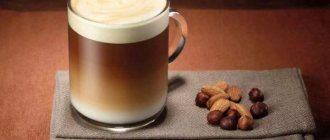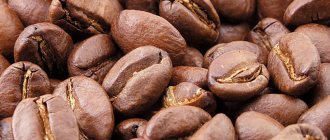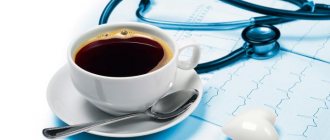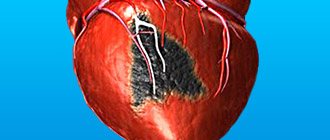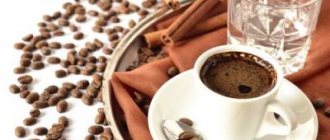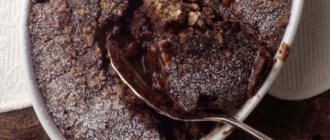Causes
Caffeine is one of the most popular psychoactive substances in the world and is present in many drinks and foods. Caffeine belongs to the methylxanthine class of stimulants that act on the central nervous system. He can:
- speed up metabolism
- increase urine production
- improve digestion
- increases heart rate
- relax smooth muscles
- increase physical performance
- Helps treat certain types of cancer
However, caffeine may cause or contribute to headaches. A study found that 50% of people experience a throbbing, widespread headache during caffeine withdrawal. This is because caffeine has a vasoconstrictor effect, meaning it constricts blood vessels and reduces blood flow. With regular consumption of caffeine, blood vessels become accustomed to constriction. Decreasing caffeine dilates blood vessels. This reaction is important because blood vessels dilate before certain types of headaches occur.
Caffeine also blocks adenosine receptors in the brain, which are pain modulators. Blocking these receptors could potentially reduce the spread of headache pain. People who consume caffeine regularly have more of these adenosine receptors, making them prone to developing headaches when they stop consuming caffeine.
To avoid headaches, stop drinking coffee
Caffeine is a psychotropic substance that is also addictive. And the main target of its influence are blood vessels. And the main cause of migraine, of all those studied, is vascular.
Caffeine is found in tea, coffee, and sweet drinks and causes spasm (contraction) of blood vessels, including the brain. The tonic effect lasts 30–40 minutes. Then the vessels return to their normal tone. For some, this condition manifests itself as drowsiness. What does a person do in this case? Drinks another mug of coffee.
Thus, the blood vessels of the brain are in constant tone all day long. Vasoconstriction leads to increased intracranial pressure, deterioration of blood supply to certain brain structures and other side effects. And the above-described condition manifests itself as a headache.
What about caffeine-containing medications that are indicated as a remedy for headaches? And why does one cup of coffee sometimes relieve a headache?
It's all about quantity here. If you don't drink caffeine or don't drink it often, drinking a mug of coffee during a headache will work. A sharp and rare spasm. If this condition occurs frequently in the body, there will be no effect. On the contrary, caffeine, by worsening blood circulation in the brain, will lead to chronic migraines.
Advertising
It’s also difficult to determine the norm; after all, caffeine is a psychotropic substance and leads to the development of addiction: a cup of coffee in the morning can easily turn into 5 cups in a day.
There are many studies on the hyperglycemic effect of caffeine. Even a cup of coffee without sugar causes blood glucose levels to rise. Sugar spikes again, they are also migraine triggers.
The caffeine contained in sweet carbonated drinks and energy drinks has nothing in common with natural caffeine. This white powder, produced in Chinese factories, is a strong allergen and is harmful to health.
Perhaps the safest and most natural caffeine is tea caffeine, the effects of which are neutralized by tannin. 1-2 cups of black or green tea will not harm even patients with migraines.
Herbal teas - lavender and mint - have a general relaxing effect and work great even at the peak of a headache.
I am also against drinking coffee every day because I see the effect on migraine patients, I see how they begin to live a full life after eliminating coffee and sugar.
Patient's story
Natalya, 38 years old, made a specific request - to remove more than 30 kg of excess weight and find the cause of the headache. The headache was so disturbing that it led to episodes of bulimic consumption of flour and sweets.
The cause of the migraine was quickly found - 5-6 cups of coffee a day. Dose reduction schemes do not work here - in such cases, complete withdrawal is necessary. Here and now. It was a difficult 12 days. Episodes of headaches came almost every day, but the nature of the pain was different - the pain was of moderate intensity, and the condition manifested itself simply as weakness and drowsiness.
Natalya coped: she was distracted, meditated, and went for a massage almost every other day. On the 12th day, the craving for flour and sweets, as well as the headache, disappeared, just in one day.
The weight loss was very effective: in two months I lost 12 kg, although the initial weight was more than 100 kg. Then another 10 kg in 3 months. We continue to lose weight and plan a pregnancy. Without headaches and with a feeling of complete control over your addiction.
Treatment
The fastest and easiest way to relieve caffeine withdrawal headaches is to consume caffeine. However, people trying to reduce their caffeine intake can use other remedies to reduce headaches.
Taking painkillers
Ibuprofen, aspirin, and acetaminophen contain compounds that block pain signals and relieve headaches. However, taking pain medications more than two to three times a week can lead to a headache known as drug overuse headache
.
Drink more water
Dehydration can trigger pain receptors in the skull. Sometimes even minor dehydration can lead to severe headaches.
Ice
Ice constricts blood vessels and slows the transmission of nerve signals. In one study, researchers showed that applying ice to the neck reduced pain in participants who were experiencing migraines.
Topical application of menthol
Menthol can numb the skin and reduce pain. Rubbing a few drops of diluted peppermint essential oil onto the forehead or temples can relieve headaches.
Dream
Sleep disorders are associated with many types of headaches, meaning there is a connection between sleep and headaches. Adequate and high-quality sleep usually reduces headaches. However, if you sleep too much or take sleeping pills too often, your headaches may get worse.
Acupuncture
Researchers don't know how acupuncture relieves headaches, but it may slow down pain signals and activate brain pathways that can shut them down.
Acupressure
Acupressure is a technique based on the traditional Chinese medical therapy of acupuncture. It involves manipulating a specific pressure source, which can reduce headaches by improving circulation and reducing muscle tension.
Nutritional supplements
Researchers have studied many different dietary supplements as potential treatments or prevention for headaches. They found several potentially beneficial effects:
- coenzyme Q10
- riboflavin (vitamin B2)
- magnesium
- pyrethrum
Most supplements only work when taken regularly over time.
The effect of alcohol on the female brain?
Complications caused by drinking alcoholic beverages are more serious in the fairer sex than in men.
It has been experimentally proven that ethanol behaves much more aggressively towards the cells of a woman’s body than towards the cells of a man. Organs and their functions are more susceptible to the negative effects of alcohol. The destruction of the liver, damage to the heart muscle and cells of the nervous system occurs faster.
Having carried out a comparative analysis of the results of studies of the human brain using MCT, scientists have established the fact that the negative effects of ethanol manifest themselves in the fact that the brain decreases in size.
The degree of such a decrease is the main indicator that organic changes are present in the brain cells. And the longer the experience of drinking alcohol, the higher these indicators.
In addition, the results of the experiments showed that both women and men who suffer from alcohol addiction face certain problems when they have to learn something or remember any information. All this occurs due to frequent consumption of alcoholic beverages.
Note that the male representatives who participated in such an experiment had twice as much experience of regular consumption of large amounts of alcohol than the fairer sex.
It turns out that the negative effects of ethanol on both the male and female brains manifest themselves in the same ways. But it is necessary to take into account that women took exactly half as much alcohol. From all this we conclude that ethanol has a stronger effect on the female brain.
In contrast, two articles were recently published in an American publication discussing the role of gender in the effects of ethyl alcohol on the body.
The authors came to the opposite conclusion, that is, according to them, ethanol has the same effect on everyone without exception. This means that experiments of this kind need to be continued in order to find out the specific effects of ethyl alcohol on a woman’s brain cells.
Other caffeine withdrawal symptoms
People who reduce their caffeine intake may also experience:
- anxiety
- irritability
- problems concentrating
- trembling or trembling of the hands
- fatigue and drowsiness
- depressed mood
- increased heart rate
- nausea and vomiting
- high or low blood pressure
- skin hyperemia
- constipation
- flu-like symptoms
- joint and abdominal pain
- muscle stiffness
The severity and number of symptoms a person experiences during caffeine withdrawal depend on how much they typically consume and how quickly they reduce their caffeine intake.
Even people who drink only one small cup of coffee daily for 3 days may experience withdrawal symptoms if they suddenly stop drinking coffee.
According to one study, most people experience withdrawal symptoms within 12-24 hours when cutting back on caffeine intake and experience the most severe symptoms within about 20-51 hours. Caffeine withdrawal symptoms can last from 2-9 days.
People often describe caffeine withdrawal headaches as a widespread, throbbing headache.
Researchers define caffeine withdrawal headache as a headache that:
- develops within 24 hours of the last caffeine use in people who consume at least 200 milligrams (mg) of caffeine per day for more than 2 weeks
- pain goes away within 7 days after stopping caffeine
- the condition improves within 1 hour after drinking 100 mg of caffeine
What other foods can give you a headache?
Neurologists identify a number of other products that can affect the occurrence of headaches:
- Red wine, cheese, liver, yogurt, sour cream, yeast-containing products, and smoked fish may contain biogenic amines such as tyramine. They affect heart rate, sleep, blood pressure and can trigger reactions that lead to headaches. Monitor your reaction to these products.
- Products containing flavor enhancers: sausages, ready-made sauces, marinades, confectionery, restaurant food. Thus, monosodium glutamate, due to the stimulation of certain areas of the brain, can generate foci of headaches.
- Excessive consumption of table salt can cause migraines by increasing overall blood pressure. There is no need to completely give up salt, and minimizing the amount to 2–4 g per day makes sense, especially for patients with hypertension and migraines.
Advertising

